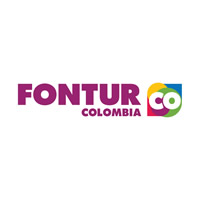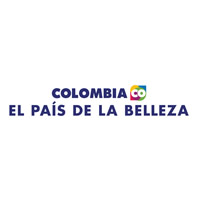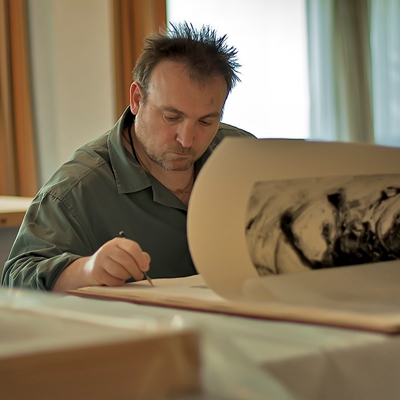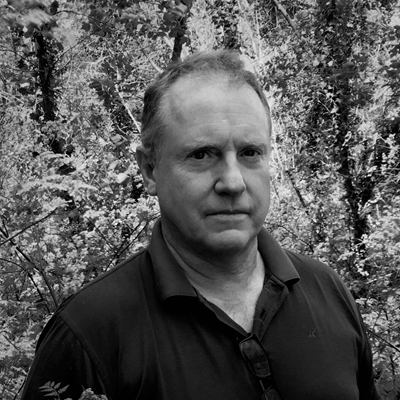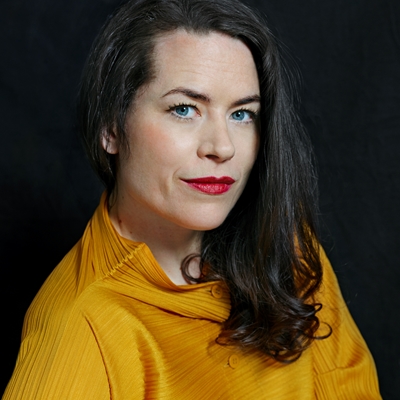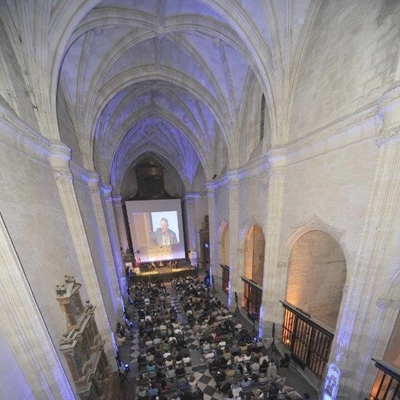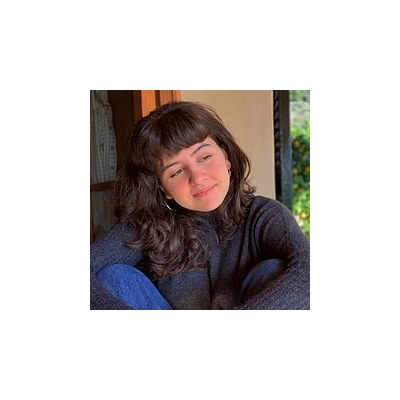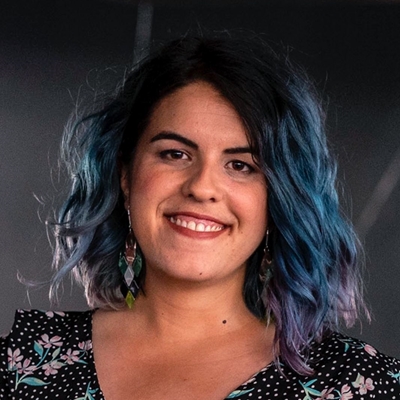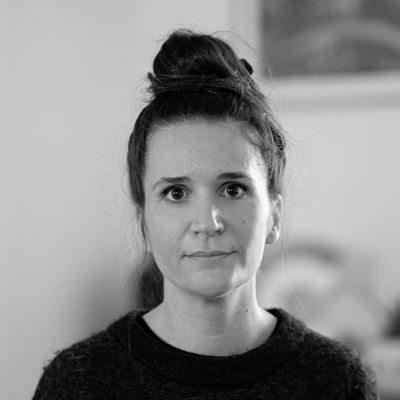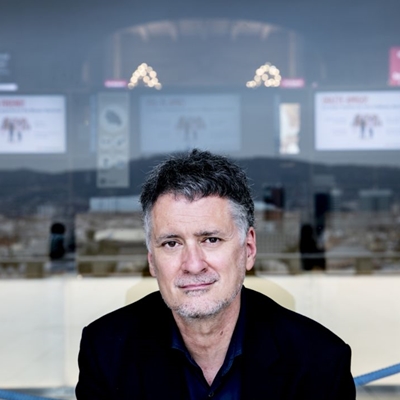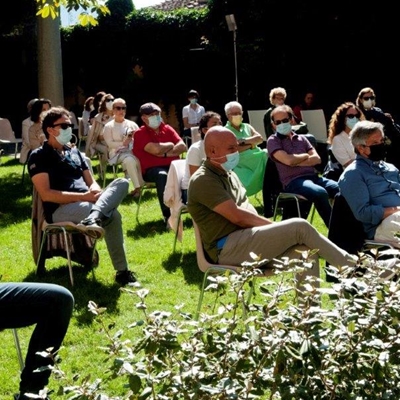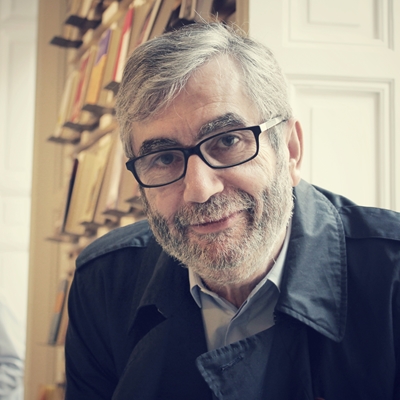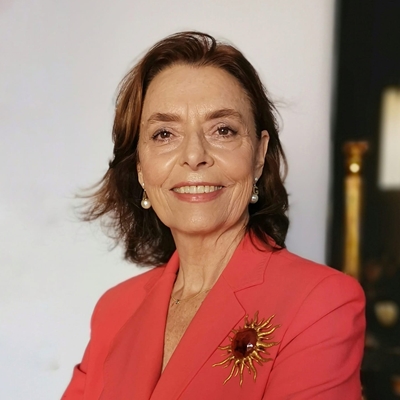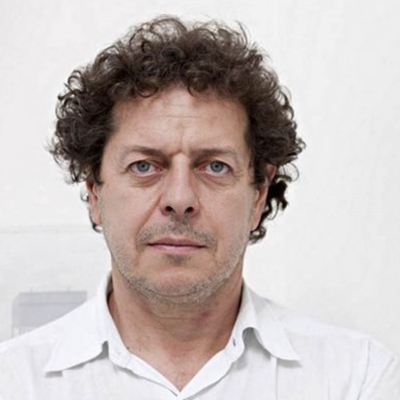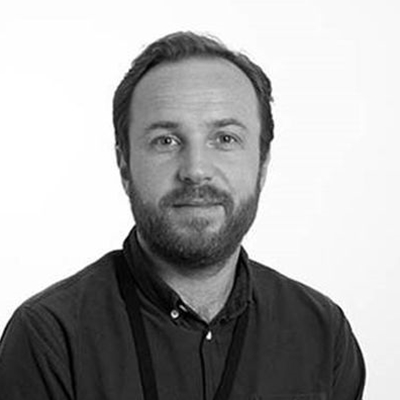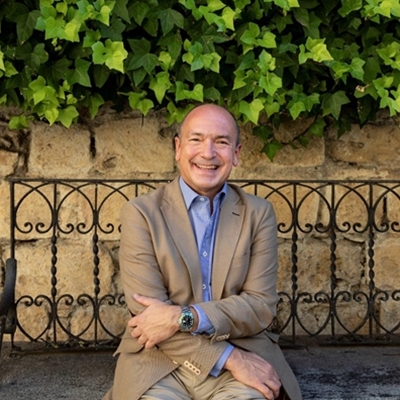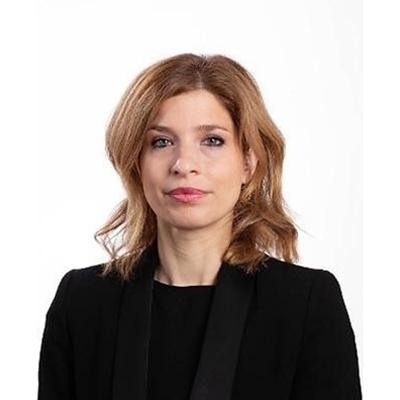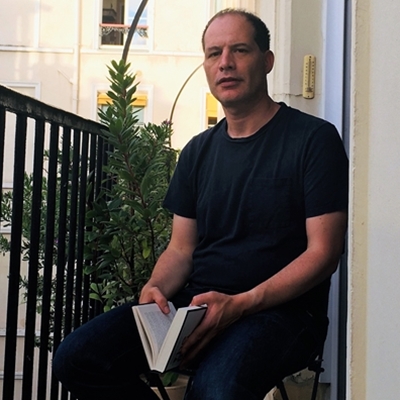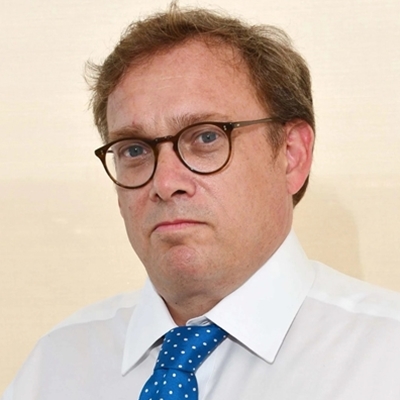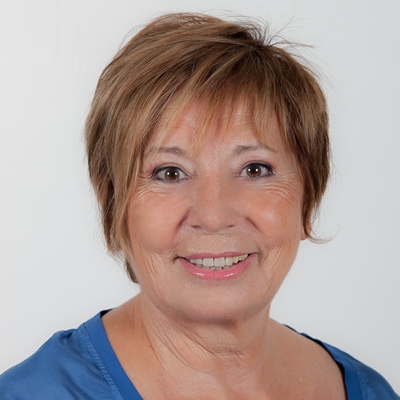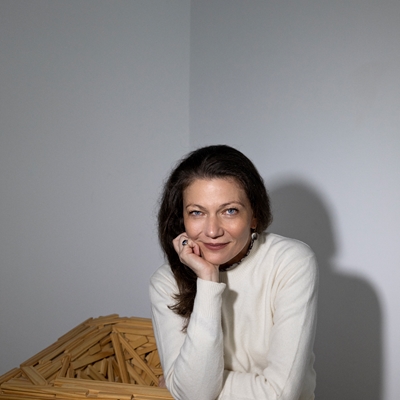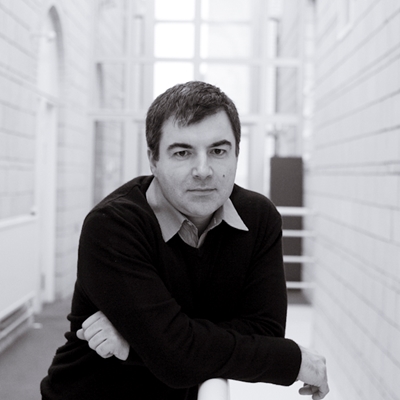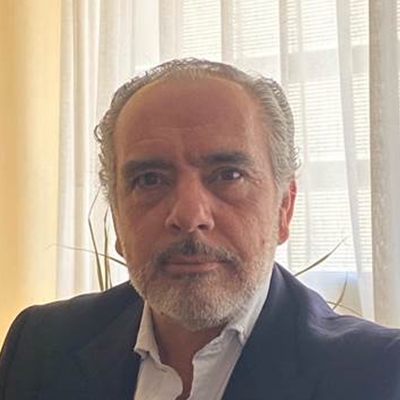Online Events
Event 63
Miquel Barceló in conversation with Enrique Juncosa
IE University
Miquel Barceló's latest works, a series of large-scale still lifes, will be the main focus of this internationally renowned Spanish artist’s appearance at the Hay Festival. The pieces are to be exhibited at the Thaddeus Ropac gallery in Pantin on the outskirts of Paris in October, and one will be part of an exhibition on the genre of still life at the Louvre in Paris. Associated with neo-expressionism, Barceló's work has evolved to become one of the most original on the European scene.
Barceló will be in conversation with the writer and exhibition curator Enrique Juncosa. He was director of the Irish Museum of Modern Art in Dublin from 2003 to 2012, for which he received the Order of Civil Merit. Before that, he was deputy director of IVAM and the Reina Sofía Museum. He has curated more than 70 exhibitions in major museums around the world.
The event will be presented by Sofía Barroso.
Event in Spanish
Photo credit: Ramón Pérez Niz. CC BY-SA 2.0
Organized with Around Art
Event 22
Pavlo Derevianko, Anatolii Dnistrovyy, Charlotte Khmelnytska, Mariana Mamonova and Kateryna Pryimak with Vadym Karpiak
War and mass culture
Digital venue
In partnership with Radio Kultura

Event 64
Liv Strömquist is one of Sweden's most prestigious comic artists, as well as a committed feminist activist. In her latest comic, The Hall of Mirrors, the author asks to what extent the dictatorship of the image has undermined our relationship with our bodies. Always acidic and irreverent, the author tries to explain, through current personalities, pop references and philosophical theories, how our world has changed in the Instagram era.
She will reflect on this and other highly topical issues together with the writer and journalist Nuria Labari, with the aim of unravelling the canon that enslaves us, and trying to find some reality among so many filters.
Strömquist is one of Europe's most irreverent cartoonists, as well as a popular radio and television broadcaster. Her graphic essays have been published in Spain: El fruto prohibido, Los sentimientos del Príncipe Carlos, No siento nada, and recently La sala de los espejos.
Nuria Labari is a writer and journalist. Her latest novel is The Last White Man (Random House, 2022). Her career and professional life have intertwined with the digital transformation of the media and her work has been translated into English, Romanian and Swedish.There will be a book-signing at the bookstand in front of IE University
Event in English with simultaneous translation into Spanish
With the support of the Embassy of Sweden in Spain and Penguin Random House Publishing Group
Event 16
Tomica Bajsić, Krzysztof Czyzewski talk to Kateryna Botanova and Halyna Kruk
The Myth of Central Europe: A Story of Resistance and Solidarity
Digital venue
How countries from the former Warsaw bloc joined the myth of Europe, how the collapse of the Soviet Union affected the self-identification of Western European countries, how migration from other continents affected the European myth. And where exactly is the center of Europe. Krzysztof Czyżewski is a Polish author, one of the initiators of the Borderland Foundation in Sejny, Poland; Tomica Bajsić is a poet, writer and illustrator. Chaired by cultural critic and translator Kateryna Botanova and Halyna Kruk.
Krzysztof Czyżewski will join the event digitally
In partnership with House of Europe

Event 69
Joana Marcús, an early reader and writer, discovered Whattpad, a digital platform where users can read online or share their own stories, at the age of eleven. By the age of 15, she had published six stories, including Irresistible Propuesta, which garnered 300,000 views. Now she has made the leap to Crossbooks, which has published her trilogy Fuego. This same platform put Iria G. Parente, writer and publicist, in contact with Selene M. Pascual, with whom she creates her novels for young readers. After several titles, Secretos de luna llena gave rise to one of her most successful sagas, Marabilia, which was published by Nocturna and is currently in production for television.
Joana Marcús and Iria G. Parente will talk with her editor, Rosa Samper.
Event in Spanish
Once the event has finished, the authors will sign books in the booth outside IE University.
Organized together with Penguin Random House Publishing Group
Event 17
Norman Naimark, Lyudmila Hrynevych, Vladyslav Hrynevych, Paul Robert Magocsi, Igor Shchupak and Yehor Vradii
Genocides in the History of Humanity and Ukraine: Memory, Memorialization and Modern Challenges
Digital venue
A discussion on the nature of genocides in history from Biblical times to Darfur; the tragedy of Babyn Yar as a worldwide symbol of the Holocaust, genocidal practices of Russia in the modern war against Ukraine. What do we know and how do we remember genocides in world history? How is the memory of the Holodomor ('death by hunger' in Ukraine in 1932/33) erased in the Ukrainian territories temporarily occupied by Russia, and why should these practices be considered as one part of genocide? Why is it important for modern Ukraine to preserve the memory of the past genocides?
Norman Naimark is an American historian, author of Genocide: A World History; Lyudmila Hrynevych is a director of the Holodomor Research and Education Committee; Vladyslav Hrynevych's book is Babyn Yar: History and Memory; American professor Paul Robert Magocsi is Chair of Ukrainian Studies at the University of Toronto; Igor Shchupak is director of the Tkuma Ukrainian Holocaust Research Institute and Yehor Vradii is assistant director.
Norman Naimark will join the event digitally.
Supported by the US Embassy in Ukraine

Event 68
Nerea Luis Mingueza and Mónica Rikic in conversation with Miquel Molina
On artists and robots
Torreón de Lozoya
The rapid development of technologies such as artificial intelligence and robotics mean that the debates about their advantages and ethical implications are constantly being updated. Digital culture is another area whether our attitudes need to be continuously revised. Nerea Luis Mingueza is a Doctor of Computing Science and an enthusiastic educator in matters related to artificial intelligence and robotics. Mónica Rikic is an electronic artist and a creative programmer. Her work explores the unknown land that lies at the interface between human and machine.
Nerea Luis Mingueza and Mónica Rikic will talk to the writer and journalist Miquel Molina, Assistant Editor of La Vanguardia.
Event in Spanish
With the support of Fundación Banco Sabadell, Fundación Caja Segovia and La Vanguardia
Event 18
A conversation on the newly translated book The Language of War by Oleksandr Mykhed. Mstyslav Chernov, the Oscar-winning director of 20 Days in Mariupol, says: “Mykhed tackles the immense challenge of finding a language that can convey the horror and absurdity of war, and he does so with devastating impact. Mykhed skillfully assembles recollections, anecdotes, portraits, and conversations alongside a catalogue of war crimes, creating a uniquely powerful account of what has happened to Ukraine since February 2022. Both deeply personal and universally significant, this book should be required reading for all.” Chaired by the Guardian's senior international affairs correspondent Emma Graham-Harrison.

Event 71
Antonio Muñoz Molina in conversation with Ana Gavin
The impossible return
La Alhóndiga. Escenario Gales / Llwyfan Cymru
The pandemic was a time of fear and uncertainty, but also of silence and reading, of reflection on the past. Antonio Muñoz Molina, an RAE member and one of the most distinguished writers on the Spanish literary scene, puts his brilliant analytical prose to the service of memory. The memory of a recent time, one hidden from the history books, and another memory: the world of his childhood in the countryside, which will die when his last protagonists die. Volver a dónde talks about those days of contemplation, of confusing and alarming news, but also of hope for the future. It is a brilliant addition to an impressive oeuvre that includes novels, essays, diaries and stories; a career that has been worthy of major prizes including the Princess of Asturias Literature Award.
Muñoz Molina will talk to Ana Gavin, Publishing Relations Manager for the Planeta Group and a publisher with many years of experience, including working with outstanding figures in Spanish-language literature.
The writer will sign his works after the event at the stand on Calle Real.
Event in Spanish
Organized together with AC/E (Acción Cultural Española), Spain Guest Country Frankfurt 2022, and the collaboration of Fundación Jose Manuel Lara
Event 23
Taras Ishchyk, Dmytro Koval and Mariana Mamonova with Tetiana Troshchynska
To speak, to be silent, to speak up again. In memoriam of our beloved ones
Digital venue
In partnership with Radio Culture

Event 73
The Munch in Oslo is one of those new pieces of architecture that are establishing Oslo's image as a capital of sustainable, egalitarian and civilised modernity. It is the latest work by Spanish architect Juan Herreros, whose career includes other art-related creations. The verticality of the museum is one of its most outstanding features. "A disruptive idea, like hanging paintings along a spiral ramp," say the studio's directors, referring to Frank Lloyd Wright's Guggenheim in New York. This Hay Festival, Herreros will speak about architecture, design, sustainability and interaction with the environment, as the dynamic nature of this centre allows visitors to discover both Munch's work and Oslo; the scale of the city further revealed the higher you go.
He will talk with Martin Braathen, architect and Senior Curator of Architecture at the National Museum, Oslo, M.Arch in Architecture, PhD in Architecture history (2019), formerly editor of journal Arkitektnytt, and acting director of Oslo Architecture Triennale. Braathen has many years of experience as freelance architecture critic and writer, curator.
The event will be presented by Edgar Gonzalez, Associate Dean at IE School of Architecture and Design.
Picture: Nasjonalmuseet for kunst, arkitektur og design
Event in English and Spanish with simultaneous translation into Spanish and English.
Organised with the Norwegian Embassy in Spain and Munch, Oslo and IE School of Architecture and Design
Event 19
Natalia Kryvda, James Alan Robinson, Vakhtang Kebuladze, Oleksandr Komarov, Adrian Karatnycky in conversation with Oliver Bullough
To prepare a grab-and-go bag: A Tale of Empires Falling
Digital venue
What causes empires to fall, can they fall without casualties, and which are the modern empires? Natalia Kryvda is a philosopher and a director of Academic Programmes at Edinburgh Business School Eastern Europe; James Alan Robinson is a British economist and political scientist, Vakhtang Kebuladze is a philosopher, writer and translator; Oleksandr Komarov is a philosopher currently working on the frontline giving psychological support to Ukrainian service men and women; Adrian Karatnycky is author of Battleground Ukraine: From Independence to the War with Russia. Chaired by British investigative journalist Oliver Bullough.
Oliver Bullough, Adrian Karatnycky and James Alan Robinson will join the event digitally.
Supported by the U.S. Embassy in Ukraine

Event 72
Hana Jalloul, Celia Villalobos, Simon Kuper, Adrian Wooldridge and Santiago Iñiguez
Meritocracy and elitism
IE University
Santiago Iñiguez, Executive President of IE University and an international expert in education, brings together a group of experts to debate the meaning of meritocracy and its implications in education and other spheres of social life. The researcher into subjects related to international terrorism and member of the Assembly of Madrid, Hana Jalloul; the former politician Celia Villalobos, who was Minister of Health and Consumer Affairs, Mayor of Malaga and Vice President of the Spanish Congress of deputies; the author of The Aristocracy of Talent: How Meritocracy Made it to the Modern World and international journalist, Adrian Wooldridge; and the Financial Times columnist Simon Kuper, author of Chums: How a Tiny Caste of Oxford Tories Took Over the UK reflect with Iñiguez on the impact of this phenomenon in history and in the future of our societies.
Once the event has finished, the authors will sign books in the booth outside IE University.
With simultaneous translation from English into Spanish and vice versa
Organized together with IE Foundation
Event 20
Simone Atangana Bekono, Gayatri Chakravorty Spivak, Djamila Ribeiro, Lola Shoneyin and Oksana Zabuzhko talk with Vakhtanh Kebuladze
Letting go of the past: what is the anti-colonial struggle?
Digital venue
What path should be chosen by one group that has long been subordinated to another, stronger one? Is the cancel culture the only way to break free from the domination of the aggressor?. And what if this aggressor is an empire?
A discussion on how we make sense of the post-imperial heritage, and whether it is necessary to renounce it, with the Dutch writer Simone Atangana Bekono, Indian literary critic and feminist Gayatri Chakravorty Spivak; Brazilian feminist philosopher and journalist Djamila Ribeiro; Nigerian writer and activist Lola Shoneyin; and Ukrainian philosopher and writer Oksana Zabuzhko. Chaired by philosopher Vakhtanh Kebuladze.
Gayatri Chakravorty Spivak, Djamila Ribeiro, Simone Atangana Bekono and Lola Shoneyin will join the event digitally.
Supported by the US Embassy in Ukraine, Embassy of the Kingdom of the Netherlands in Ukraine, and the Netherlands Literature Foundation

Event 6
Guillermo Arriaga in conversation with Laura Hiros
Acclaimed screenwriter and author behind Amores Perros and Babel
The Texas Theatre (Main)
Join us for an evening with celebrated Mexican writer, screenwriter, and director Guillermo Arriaga. Known for his masterful storytelling and complex, non-linear narratives, he has left an indelible mark on both literature and cinema. His work, often exploring themes of fate, violence, and the deep interconnectedness of human lives, has garnered international acclaim.
Arriaga is perhaps best known for his collaborations with director Alejandro González Iñárritu, co-writing the screenplays for the award-winning films Amores Perros (2000), 21 Grams (2003), and Babel (2006). These films, renowned for their intricate narrative structures and emotional depth, have earned him numerous accolades, including a BAFTA for Best Original Screenplay for Babel.
Beyond his work in film, Arriaga is a distinguished novelist. His books, such as The Night Buffalo ('El búfalo de la noche') and The Savage ('El salvaje'), showcase his distinctive voice and his ability to delve into the darker aspects of the human experience. His stories are raw, intense, and unforgettable, reflecting his belief in the power of narrative to illuminate the complexities of life.
Arriaga has also made his mark as a director with his debut film The Burning Plain (2008), starring Charlize Theron and Kim Basinger, which continues his exploration of the themes that define his work.
In conversation with Laura Hiros, local film critic and journalist with over 20 years of experience.
Simultaneous interpretation from Spanish to English available
This ticket grants you access to the 3 PM screening of Amores Perros before the conversation event.

Event 78
Reading Javier Marías
Torreon de Lozoya
Hay Festival pays homage in the simplest and most participatory way to one who has been one of the fundamental storytellers in recent decades. A joint public reading with journalist Pedro Zuazua as master of ceremonies.
Anyone who wants can come to read a paragraph of his works (articles, novels, essays) along with some of the participants in this edition of the festival.
The most meaningful and authentic tribute that an author can deserve.
The first confirmations to read are: Sofia Barroso, María Fasce, Reyes Monforte, Jesús Ruiz Mantilla, Carlos Aganzo, Beltrán Gambier, Geoffroy Gerard, Laura Garrido, Carlos Hernández-Lahoz, Nuria Ramos, Miguel Aguilar, Aurelio Martin, Alberto Marcos, Angélica Tanarro, Elizabeth Gruninger, Miquel Molina, Jesus Calero, Prince Lorenzo de´Medici and Pablo Moro.
Event in Spanish
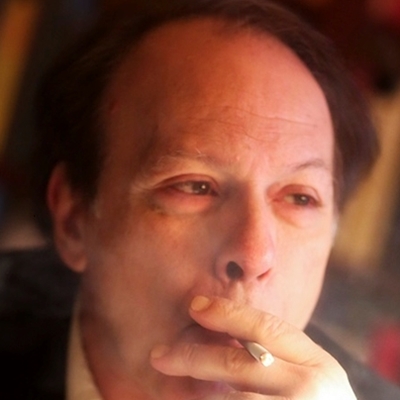
Event 7
Bruna Dantas Lobato and Douglas Stuart talk to Natalie Green
Presented by the National Book Foundation
The Texas Theatre (Upstairs)
Join us for an engaging conversation between Booker Prize-winning author and National Book Award Finalist Douglas Stuart and acclaimed Brazilian writer and translator and National Book Award Winner Bruna Dantas Lobato. This event will be moderated by Natalie Green, the National Book Foundation's Director of Programs and Partnerships.
Douglas Stuart, known for his powerful debut novel Shuggie Bain, which won the 2020 Booker Prize and was a Finalist for the National Book Award for Fiction, brings a unique voice to contemporary literature, exploring themes of poverty, addiction, and LGBTQ+ identity, continued in his international bestselling sophomore novel Young Mungo.
Bruna Dantas Lobato, an emerging force in literature and translation, has gained recognition for her poignant explorations of migration, identity, and the immigrant experience, bridging the gap between Brazilian and American literary cultures. She won the 2023 National Book Award for Translated Literature for her translation of Stênio Gardel's The Words That Remain, and her debut novel, Blue Light Hours, is out on October 15 from Grove Atlantic.
In this conversation, Stuart and Lobato will discuss their respective works, the intersections of their literary themes, and the broader role of storytelling in addressing social issues. Green will guide this discussion, offering insights into the National Book Foundation's mission to celebrate and promote exceptional literature.
Sponsored by the National Book Foundation

Event 75
Kate Daudy and Sir Konstantin Novoselov in conversation with Javier Gila
Imagine... Humanity. Everything is connected
IE University
What do a refugee, a high-level politician and a carbon atom on the other side of the world have in common? All of them share the same pattern of existence. The prominent conceptual and multimedia artist Kate Daudy, who has worked on major international projects; and the scientist and artist Sir Konstantin Novoselov, winner of the 2010 Novel Prize for Physics, have been working since 2017 on a humanitarian art and science project whose goal is to explore the ways in which Everything Is Connected and to invite the public to reflect on these connections. Daudy and Novoselov, who will undertake an artistic intervention as part of the Hay Festival, believe that it is worth considering interconnection when assessing our behaviour: our lives are what our thoughts make them. They will talk at this event about their project, which has involved collaboration with different NGOs and institutions linked to humanitarian work in the context of aid and development cooperation.
They will talk to Javier Gila, chair of the Aida: Ayuda, Intercambio y Desarrollo association, who has been working with them on the project.
With simultaneous translation from English to Spanish and vice versa
Organized together with Aida, Ayuda, Intercambio y Desarrollo, Segovia City Council and the support of IE University
Event 77
Lara Moreno and Renato Cisneros in conversation
Hispano-American Dialogues
La Alhóndiga. Escenario Gales / Llwyfan Cymru
Two writers with established careers who write their works on opposite sides of the Atlantic come together to talk about the worlds they reflect in their writings. In 2013, the Andalusian Lara Moreno published her first novel, Por si se va la luz. Critics welcomed it as an example of the neo-ruralist current in 21st-century Spanish literature. Piel de lobo is her second novel. She has also published short stories (Cuatro veces fuego), essay (Deshabitar) and poetry (Tuve una jaula). Renato Cisneros is a writer, journalist and television presenter. He has had a long career in the media in Peru, his native country. In 2010 he published his first novel, Nunca confíes en mí, which was followed by Raro, The Distance Between Us and Dejarás la tierra. He had previously published works of poetry, such as Ritual de los prójimos, and short stories (Cosas que no hay que contar).
Event in Spanish
Once the event has finished, authors will sign books in the booth at calle Real.
Organized together with AECID (Spanish International Cooperation for Development Agency)

Event 11
Toluse Olorunnipa and Robert Samuels in conversation with Katrice Hardy
Pulitzer Prize-winning authors of His Name Is George Floyd on racial justice
The Texas Theatre (Upstairs)
Join us for an enlightening evening with Pulitzer Prize-winning journalists Toluse Olorunnipa and Robert Samuels as they discuss their book, His Name is George Floyd, and their careers covering race and justice in America. Moderated by Katrice Hardy, the trailblazing Executive Editor of The Dallas Morning News, this event offers a powerful conversation on the legacy of George Floyd, Black Lives Matter, and ongoing racial inequality.
Olorunnipa and Samuels' deeply researched work explores Floyd's life and the systemic injustices his death exposed. Together, they will share insights into their writing process and the broader impact of their journalism.

Explore All Genres
- 20 Questions
- Afrodescendencias
- South to South
- Architecture
- Art
- Arts & Culture
- Biography
- Children
- Culture
- Economics
- Education
- Equality
- Fiction
- Film
- Gender
- Globalisation
- History
- Human Rights
- Indigenous Cultures
- Journalism
- Literature
- Maths
- Memoir
- Music
- Nature & Environment
- Philosophy
- Photography
- Podcast
- Poetry
- Politics
- Science
- Technology
- Thinking



